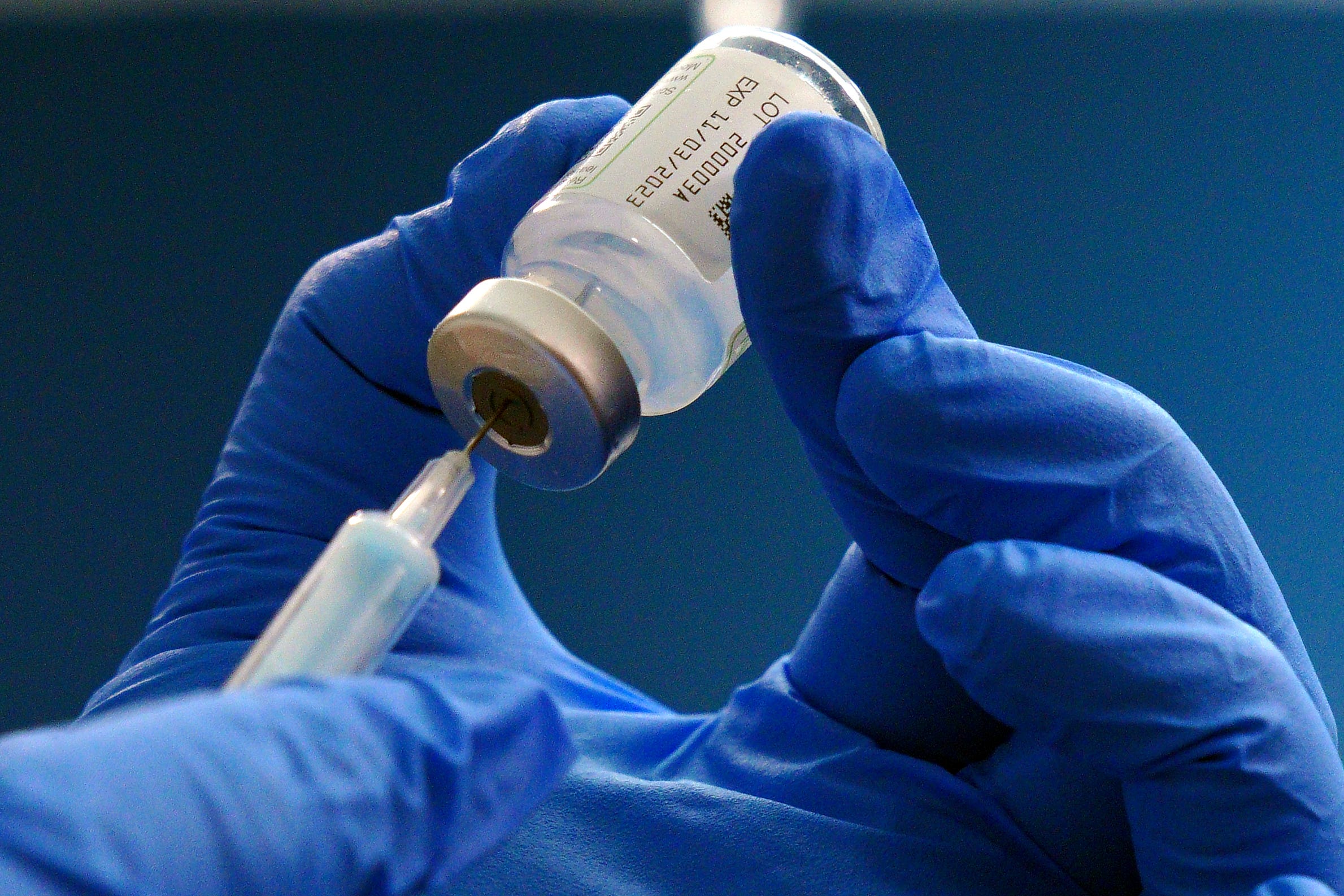Healthcare systems need an ‘always on’ approach to pandemic-readiness – expert
Sir John Bell told the inaugural Rhodes Policy Summit that starting from scratch would be very difficult.

Your support helps us to tell the story
From reproductive rights to climate change to Big Tech, The Independent is on the ground when the story is developing. Whether it's investigating the financials of Elon Musk's pro-Trump PAC or producing our latest documentary, 'The A Word', which shines a light on the American women fighting for reproductive rights, we know how important it is to parse out the facts from the messaging.
At such a critical moment in US history, we need reporters on the ground. Your donation allows us to keep sending journalists to speak to both sides of the story.
The Independent is trusted by Americans across the entire political spectrum. And unlike many other quality news outlets, we choose not to lock Americans out of our reporting and analysis with paywalls. We believe quality journalism should be available to everyone, paid for by those who can afford it.
Your support makes all the difference.Healthcare systems across the world should prepare for future pandemics with an “always on” approach to response-readiness, an expert has said.
Sir John Bell, Regius Professor of Medicine at the University of Oxford, told the inaugural Rhodes Policy Summit that starting from scratch would be very difficult, and that having a continuous system in place was necessary.
He explained that having not experienced a pandemic in recent history, when Covid-19 hit, there was a lack of existing expertise as to how to get through it.
You really want to have stuff which is operating continuously in a healthcare system without a pandemic, so that when a pandemic comes, it could pivot into those capabilities
Sir John, leading immunologist and member of the Government’s Vaccine Taskforce, and chairman of the Rhodes trustees, told the summit: “We needed to build up testing, genomics, vaccines, drugs and everything from scratch.
“I think, gave us really good evidence that starting and stopping these things is not a great way to do this.
“You really want to have stuff which is operating continuously in a healthcare system without a pandemic, so that when a pandemic comes, it could pivot into those capabilities.
“And that includes the identification of pathogens, capacity for manufacturing which is always on, deployment capabilities as we saw globally for vaccines, and a clinical research capability.”
He added: “I think, ‘always on’ is just one concept in the whole pandemic preparedness agenda.
“But it’s a terribly important one because I think if we don’t have a system, a health system in all countries – both global north and global south – that’s resilient enough, that you’re running it all the time, and you can then move and pivot quickly into a pandemic scenario, we’re going to see the same problems as we did with the Covid pandemic.”
The Rhodes Trust is an educational charity based at the University of Oxford.
Predictions of future pandemics range from the possible to the probable, but no one assesses the risk as negligible
Also speaking at the ‘Creating a Positive Legacy from the Pandemic’ event was former Prime Minister Sir Tony Blair.
He said: “The world survived Covid-19 but at a vast cost.
“Predictions of future pandemics range from the possible to the probable, but no one assesses the risk as negligible.
“Because of the possibility that any such future pandemic could involve a virus more deadly than Covid-19, it is recognised that we should ensure the capability, globally, to act much faster and more effectively than we did for Covid. ”
But he added that with concerns like the cost-of-living crisis, the war in Ukraine, energy prices and climate change, while the case for action is strong, political leaders in democratic systems are dealing with public demand on other issues.
Sir Tony said: “A year ago, talking to them about pandemic preparedness was a relevant conversation, which stimulated a fair amount of interest.
“Today, very frankly, not so much. And that is a big problem.”
However, he added that the Covid pandemic “heralded significant, possibly game-changing advances in medical science”, and this must be built on.
Sir Tony, executive chairman, Institute for Global Change, said: “We are standing at the frontier of a new rich and diverse field of medical science, which potentially revolutionises global health care saving lives, and trillions of dollars in lost output, quite apart from the impact on stretched government budgets.
“To access this potential needs a concerted international effort, to switch our healthcare systems from preparing for the next crisis, whose advent is uncertain and whose effects are unknown, to an ‘always on’ network of enhanced capability globally that can both spring into action immediately should we be gripped by a fresh pandemic, but which in any event can mobilise these changes in medical science to treat and prevent disease here and now.”